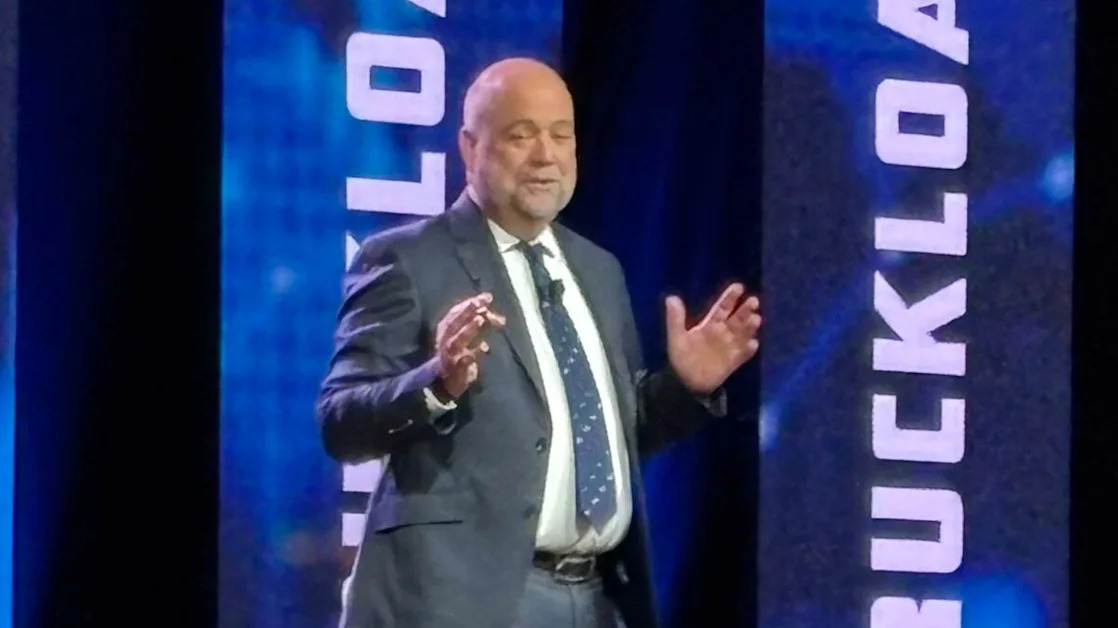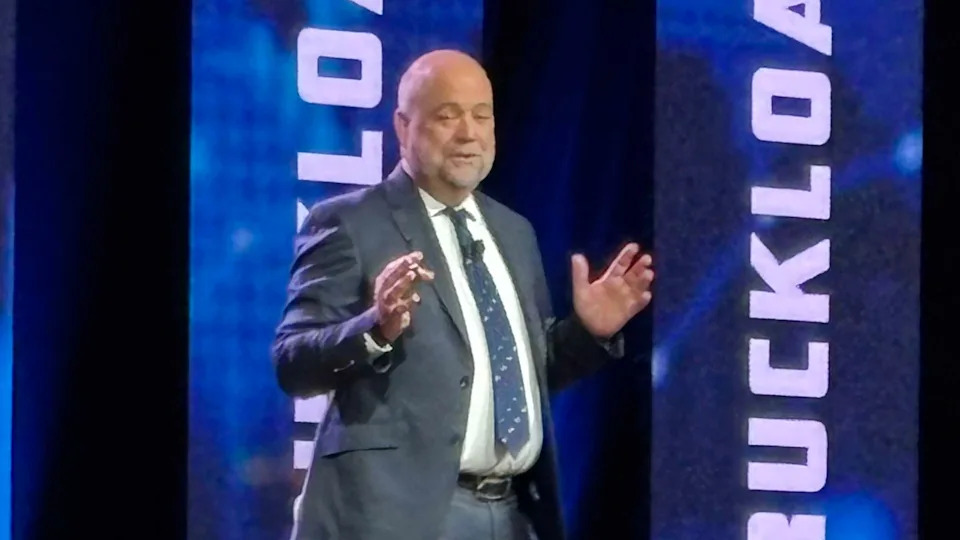
ATA economist: US port fees on Chinese ships will hurt freight markets

PHOENIX – In a broad presentation on the freight market outlook, the chief economist at the American Trucking Associations expressed general concern about the impact of tariffs on freight markets but reserved some of his strongest remarks for upcoming fees on Chinese ships calling at U.S. ports.
Bob Costello, speaking to the annual conference of the Truckload Carriers Association (TCA), said the proposals revealed last month by the U.S. trade representative , if implemented, “absolutely could change freight patterns in the U.S.”
The changes have their roots in a trade complaint submitted by labor unions during the Biden administration, charging Chinese shipping companies with engaging in unfair labor practices in shipbuilding and oceangoing freight movements.
The ATA’s contacts in the federal government said the Biden administration decided at the end of its term, “We’re not going to make a decision on this. Let’s just leave it for the next administration.”
The reaction at the ATA to that decision was, “Good,” Costello said. He then laid out why his organization thinks the policy is bad for trucking.
The proposal lays out a series of fees that would be paid under the proposal. The basic fees are as much as $1.5 million, but Costello said they can climb to $3 million.
Far fewer multiple stops?
He described a situation in which a Chinese ship now might come into the ports of Los Angeles and Long Beach, offload a portion of its cargo, head to Oakland, California, and then possibly head farther north to Seattle.
But under the proposal, Costello said, each port of call would trigger a fee. “So what they’re probably going to do is dump all of the cargo in one port and move on,” he said.
The biggest impact from that might be on the East Coast or the Gulf of Mexico, Costello said, which is dotted with smaller ports. And many of them are vital for exporters, he added.
“There’s a good chance a lot of these ocean carriers are not even going to make that call and not go to Mobile [Alabama] anymore,” Costello said. That could hinder exporters from finding capacity to export their products.
“It absolutely could change freight patterns,” Costello said. “I think it’s a really big deal.” He said the issue is “just something to watch for” and that the ATA is “working on this.”
His overall forecast was one of caution, with an outlook for moderate growth tempered by uncertainty over the impact of tariffs.
But within the forecast, like his observations about the Chinese shipping fees, were several other under-the-radar developments that could shift the supply/demand balance in trucking.